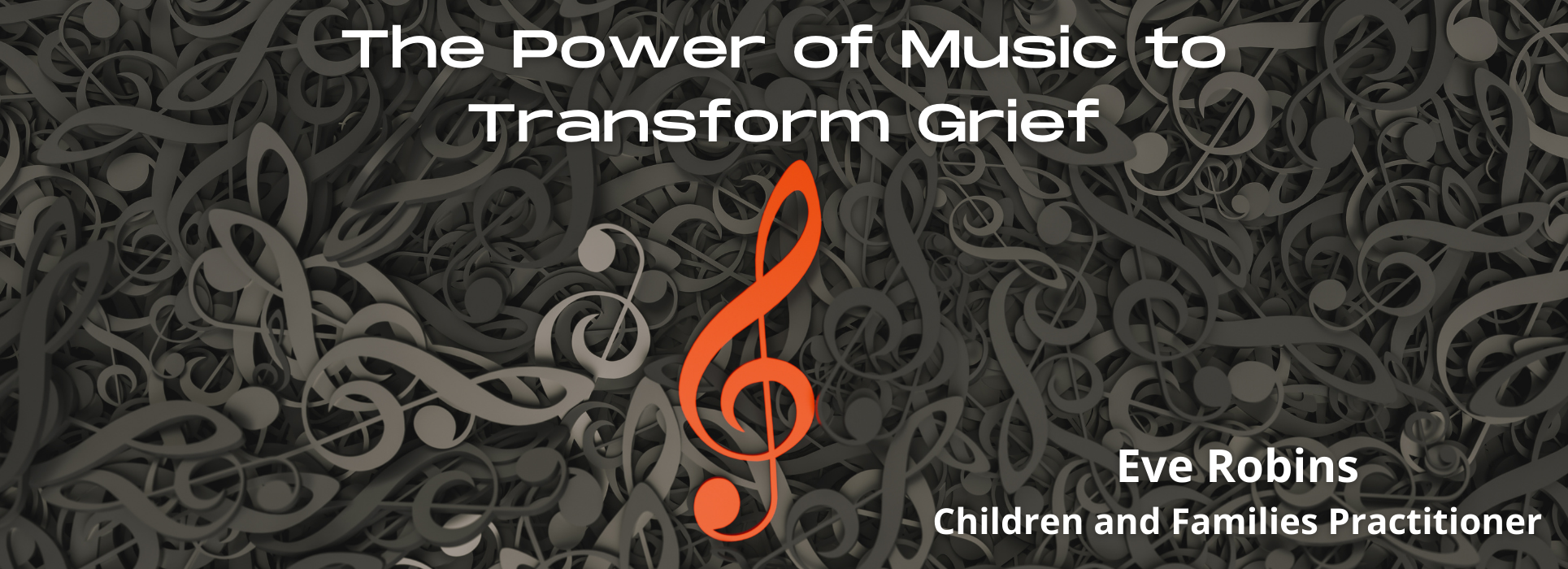The power of music to transform grief
When someone is grieving, it is important to feel connected to the person who died. That is why we encourage the children and young people that we work with to talk about their loved ones and to share memories so that the relationship is ‘kept alive.’ We sometimes refer to this as ‘continuing bonds’. One way that many people still feel connected to those that have died is t hrough music.
hrough music.
When planning a funeral, it is common to think about what kind of music the deceased enjoyed and play it in remembrance. It can bring a smile or a tear to the eye of those in the congregation just by listening to the music. But how and why is music so powerful?
Dr Victoria Williamson, who wrote about the psychology of music in the book ‘You are the Music’ explains what happens in our brain when we listen to music. She explains that there is no musical centre in our brain, instead music activates multiple, simultaneous areas of the brain – visual, tactile and sensory. The heart of what links music to our emotions and memory is called the limbic system. It is in the centre of the brain and contains the hippocampus which is associated with memory experiences and the amygdala that is attributable to emotion. The fact that emotion and memory are triggered by music is how music gains its power to transport you in time and trigger emotion. Listening to music can bypass the thinking part of the brain and tap into the emotional core of who we are as people.
Playing a favourite tune or spontaneously listening to something on the radio that catches us unawares can instantly evoke strong emotions. It might be too raw immediately after a death to listen to a song that is particularly linked to our loved one, but sometimes it is good to connect with the emotion that cannot be put into words. Listening to music might make us cry, but that is OK. Crying is an essential part of the grieving process and can be healing and cathartic. 
There are many ways in which music can be used to support the grieving process. There are some organisations that formally help people to tap into their emotional core via music such as a charity called the Swansong project, http://swansongproject.co.uk They support adults and young people (16+) to write their own songs in memory of their loved one. They work with people coming to the end of their life or who are bereaved to write a song that has meaning to them. They acknowledge the power of music to heal and transform the grieving process. You will often find music therapists working in hospices throughout the UK that do a similar thing.
Many children and young people find it too difficult to articulate their feelings verbally and for them, music can be a transformative way to express themselves. If you know a child or young person who is grieving, it might be worth asking them to think about a song or a piece of music that connects them to their loved one. You could also suggest making a playlist. Different playlists can be helpful at different times. For example, you could make a ‘mood matching’ playlist to help remember and express emotion. Alternatively, you could make a ‘mood changing’ playlist that helps shift the way you feel. Listening to the songs together might be helpful, but equally just acknowledging with the child or young person that music is important to them and enables them to feel connected, is validation in itself. We must try not to underestimate the power of music as a way to express emotion that gets to the real core of who we are as human beings.
Perhaps reading this blog has made you think about a song that you connect to your loved one. If you feel like sharing, please comment below. We would love to know your stories and share in your memories.
Excerpts taken from: https://grief-channel.com/videos/when-you-walk-through-the-storm-how-songs-can-heal-with-gideon-coe/

